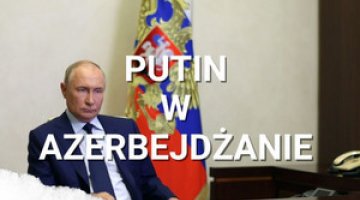The European Court of Human Rights: Russia is guilty of violations in occupied Crimea
On 25 June, the European Court of Human Rights (ECHR) in Strasbourg unanimously ruled that during the period between February 2014 and August 2015, in occupied Crimea, Russia had violated numerous articles of the European Convention for the Protection of Human Rights and Fundamental Freedoms. The judgement was passed as a result of a case which was opened when Ukraine brought two complaints against Russia on 13 March 2014 and 26 August 2015.
The court recognised evidence corroborating Russia’s inhumane treatment of prisoners, illegal deprivation of Ukrainians’ freedom, forced imposition of Russian citizenship, closure of schools and media outlets, mysterious disappearances of individuals (and failure to investigate these cases), forced displacement of the Ukrainian population (including prisoners) to Russia, persecution of religious communities and confiscation of their property, discrimination against Crimean Tatars, and numerous other violations. The ECHR emphasised that these actions were systematic practices openly tolerated by the Russian authorities. It also ruled that Moscow is obliged to ensure the safe and prompt return of the prisoners who had been transferred from Crimea deep into Russia.
Commentary
- In Ukraine, the judgement was received as a major success. The purpose of the proceedings was not to request the ECHR to investigate whether the annexation of Crimea was compliant with international law, but to assess the activities the Russian authorities carried out in the peninsula. The judgement demonstrates that a repressive state apparatus, supervised by the government in Moscow, was in place and targeted the local population. Additionally, it has nullified the narrative that Crimea’s residents voluntarily decided that the peninsula should become a part of the Russian Federation due to alleged human rights violations by Ukraine. This significantly weakens the arguments endorsed by the supporters of Crimea’s annexation.
- There are numerous indications that Russia will not implement the judgement. In June 2022, in response to the Russian Federation’s exclusion from the Council of Europe, the State Duma decided that it would not recognise any judgement passed by the ECHR. Since then, Russia has not actively participated in proceedings relating to Crimea and has not presented its response to Ukraine’s accusations.
- The ECHR’s ruling represents another defeat for Moscow in international courts, highlighting Kyiv’s increasing effectiveness in its legal battles with Russia. On 17 March 2023, the International Criminal Court in The Hague (a permanent court established to adjudicate in cases relating, among other things, to war crimes and crimes against humanity perpetrated by natural persons) issued arrest warrants for Vladimir Putin and Maria Lvova-Belova (the Presidential Commissioner for Children’s Rights). On 25 June 2024, it issued similar warrants for the secretary of the Security Council of the RF, Sergei Shoigu, and the Chief of General Staff of the Russian Federation, Valery Gerasimov. In February 2024, at Ukraine’s request, the International Court of Justice in The Hague (the United Nations’ main judicial body, which settles inter-state disputes) agreed to investigate the legitimacy of Russia’s accusations of alleged genocide perpetrated by Kyiv in the Donbas.




